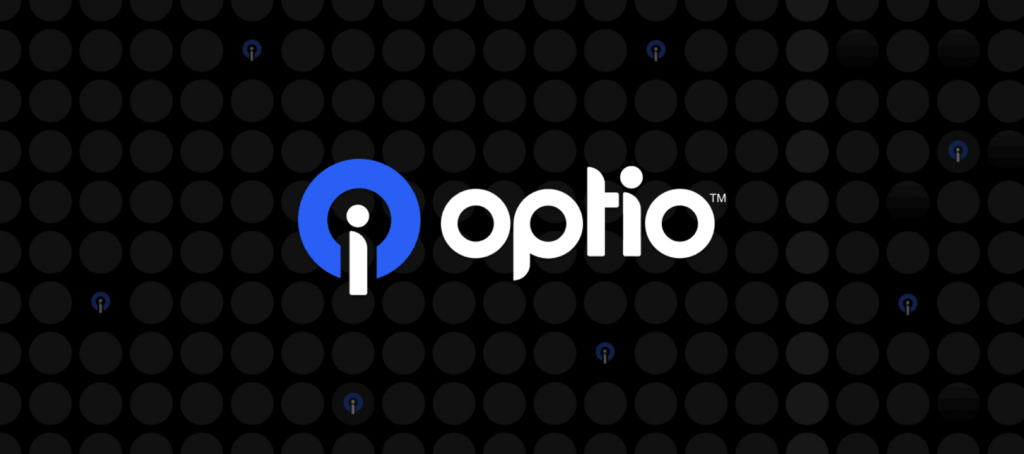Technical Architecture: From Data Monopoly to User Empowerment
Recently, the Optio blockchain project announced the listing of its native token, OPT, on XT.com and achieved deep integration with cloud computing service provider EdgeCast Cloud. Optio’s core objective is to disrupt the traditional internet’s “data monopoly” model—using blockchain technology to allow users to directly control the ownership of their behavioral data and transform it into quantifiable economic returns. For example, when users post content on social media or watch videos on streaming platforms, their click and interaction data are encrypted and stored on Optio chain nodes, and smart contracts automatically settle rewards in OPT tokens, thus shifting the paradigm to “behavior as mining.”

The collaboration with EdgeCast Cloud further expands the technical boundaries. As a global leader in content delivery network (CDN) services, EdgeCast’s distributed node resources will be combined with the Optio blockchain to provide decentralized cloud computing services for enterprises. Companies can pay storage and computing costs in OPT tokens, reducing expenses by 30% compared to traditional cloud services. Additionally, all resource procurement records are recorded on-chain, ensuring transparency and auditability. This model not only optimizes operational efficiency but also, through JuCoin’s support for seamless multi-chain asset integration, attracts more developers to the ecosystem.
Application Scenarios: Ecosystem Implementation from Social Media to Cloud Computing
Optio’s business model has proven its feasibility in several fields. On the social media side, the platform Parler utilizes the Optio chain to distribute user-generated revenue in real time—creators can directly receive OPT tokens based on post interactions, bypassing centralized platforms’ traffic distribution algorithms. On the streaming side, PlayTV allows users to earn OPT tokens by accumulating watch time and ad clicks, while also recording content copyright information on-chain, ensuring creators retain permanent control over their work.
In the cloud computing field, EdgeCast Cloud’s clients can automatically procure computing resources via on-chain smart contracts. For instance, an e-commerce company can predict server demand based on sales data and automatically trigger resource expansion contracts, avoiding delays caused by manual approvals in traditional models. This “on-chain resource market” provides flexible and low-cost IT infrastructure options for small and medium-sized enterprises. Additionally, as the only blockchain certified by the Open Computing Project (OCP), Optio’s technical solution meets data center–level energy efficiency standards, paving the way for compliant deployments by governments and large enterprises.
Market Impact: Token Listing and Industry Competitive Landscape
On its first day of listing on XT.com, the OPT token achieved a trading volume exceeding $120 million, with its price rising over 400% compared to the private sale, reflecting strong market recognition of the decentralized data economy model. This performance has also attracted traditional internet users’ attention—estimates suggest that around 37% of global social media users have a strong demand for “data monetization,” and Optio’s on-chain incentive mechanism could drive hundreds of millions of users to migrate from Web2 to Web3.
However, Optio faces multiple challenges.
- Regulatory: The compliance requirements for on-chain anonymous data under the EU’s GDPR remain unclear, which might limit its expansion in the European market.
- Technical: Its data collection relies on an oracle network; if nodes are attacked, it may lead to errors in incentive distribution.
- Industry Competition: Projects like Filecoin and BAT are entering the data economy through storage and advertising channels, so Optio must rely on a full-stack solution—from data collection to monetization—to build a sustainable moat.
Future Outlook: Cross-Chain Collaboration and the Revolution in User Sovereignty
Optio plans to launch a cross-chain data market in Q4 2025, supporting users on ecosystems such as Ethereum and Solana to convert behavioral data into OPT assets. For example, GameFi players on the Solana chain could import their game achievement data into the Optio chain, exchange it for OPT tokens, and participate in liquidity mining. This initiative must solve interoperability issues across heterogeneous chains, but if successful, it will drive the formation of a multi-chain collaborative data economy network.



